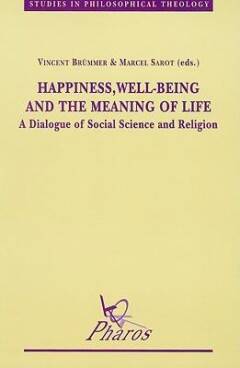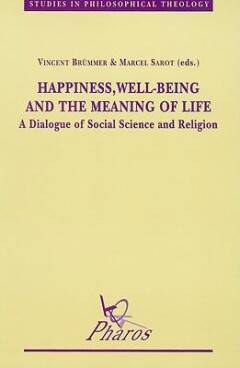
Bedankt voor het vertrouwen het afgelopen jaar! Om jou te bedanken bieden we GRATIS verzending (in België) aan op alles gedurende de hele maand januari.
- Afhalen na 1 uur in een winkel met voorraad
- In januari gratis thuislevering in België
- Ruim aanbod met 7 miljoen producten
Bedankt voor het vertrouwen het afgelopen jaar! Om jou te bedanken bieden we GRATIS verzending (in België) aan op alles gedurende de hele maand januari.
- Afhalen na 1 uur in een winkel met voorraad
- In januari gratis thuislevering in België
- Ruim aanbod met 7 miljoen producten
Zoeken
Omschrijving
The rapid cultural changes which are so characteristic for our time, have had a far reaching effect not only on the universal human research for happiness, well-being and a meaningful existence in our world, but also on the way in which these concepts are understood and misunderstood in contemporary culture. For religious believers their faith determines the ideals of happiness, well-being and meaningfulness which they strive to attain in their lives. But are these ideals timelessly the same for all time and for all people or are they too subject to historical change and cultural variation ? Social scientists examine the way in which these ideals are culturally pluriform and subject to empirical change in religious and cultural communities and traditions. But what do these concepts mean for social scientists ? Do they use them in the same way as religious believers and theologians do ? In December 1992, the Center for Theological Exploration Inc. sponsored its fourth (and final) Consultation on Science and Religion at the University of Aarhus in Denmark. For that occasion a distinguished international group of theologians and social scientists were invited to discuss these issues. Most of the contributions to this volume were originally presented as papers at that consultation.
Specificaties
Betrokkenen
- Auteur(s):
- Uitgeverij:
Inhoud
- Aantal bladzijden:
- 162
- Taal:
- Engels
- Reeks:
- Reeksnummer:
- nr. 17
Eigenschappen
- Productcode (EAN):
- 9789039002711
- Verschijningsdatum:
- 1/01/1996
- Uitvoering:
- Paperback
- Formaat:
- Trade paperback (VS)
- Afmetingen:
- 157 mm x 234 mm
- Gewicht:
- 272 g

Alleen bij Standaard Boekhandel
+ 125 punten op je klantenkaart van Standaard Boekhandel
Beoordelingen
We publiceren alleen reviews die voldoen aan de voorwaarden voor reviews. Bekijk onze voorwaarden voor reviews.









